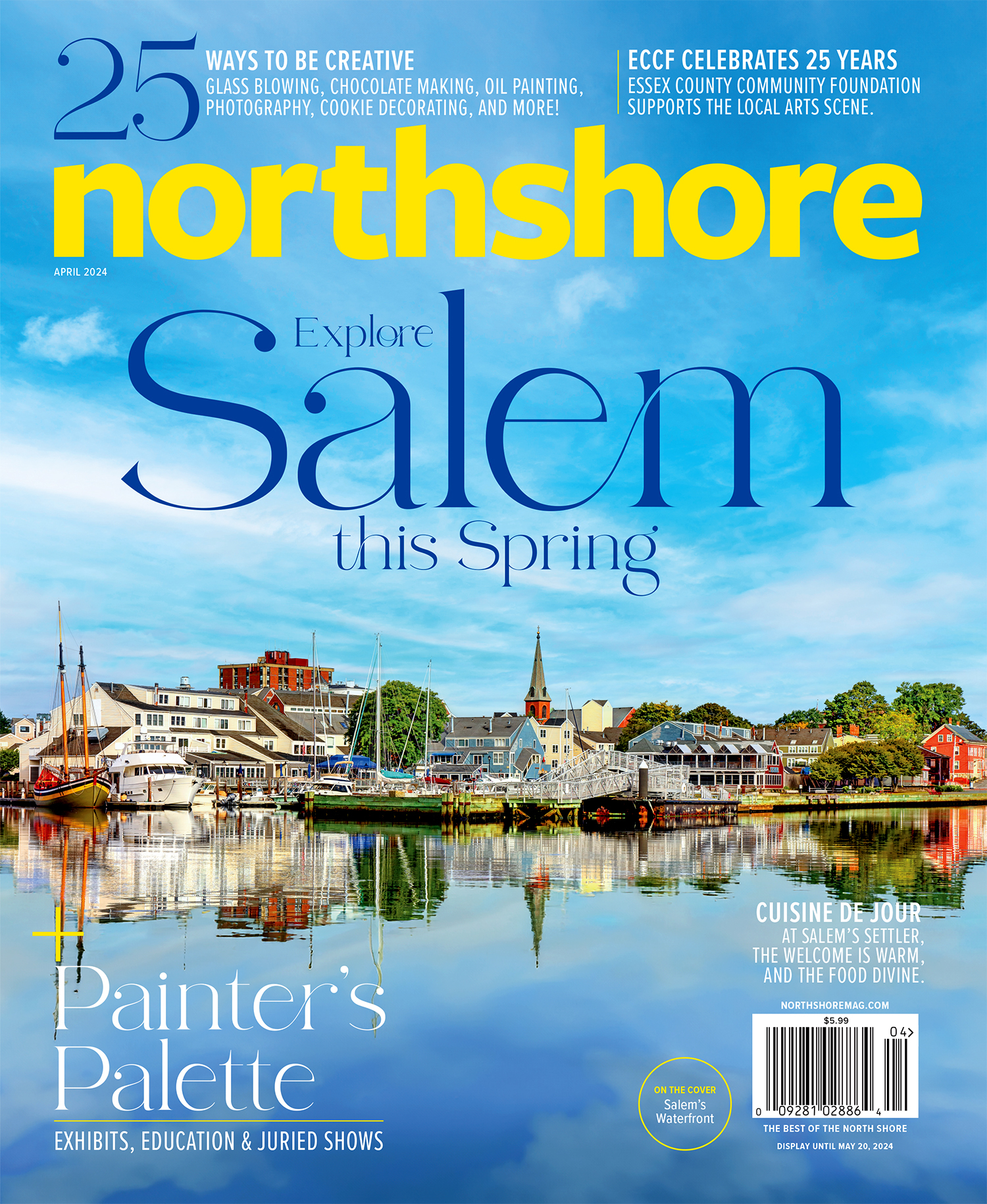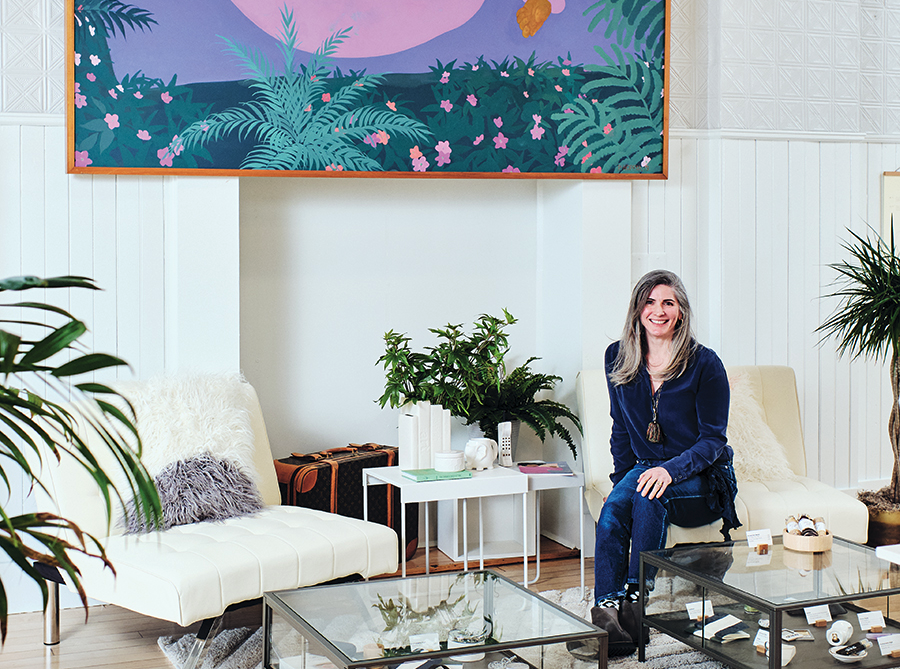Unless you’ve recently woken up from a Rip Van Winkle–length slumber, you’ve no doubt heard of CBD. CBD stores are popping up all over the North Shore and beyond, from quaint downtown shops to mall kiosks. Many people swear by CBD’s benefits, and users range from the elderly to children to dogs.
Despite its sudden ubiquity, though, CBD retains an air of mystery and unanswered questions: What’s the difference between CBD and marijuana? Is it legal and safe? Where should I buy it?
“I think just like any other medicine or supplement or drug, there should be a conversation about how it works and what the risks and benefits are,” says Jeffrey Gold, MD, founder and owner of Gold Direct Care PC in Marblehead.
Reliable information has traditionally been challenging to find, even for physicians, since clinical research is still in its early phases. Experts agree that like any supplement, CBD should be taken under the guidance of a physician.
This article doesn’t constitute medical or legal advice, and is certainly not exhaustive, but we hope it will help you begin a conversation about whether CBD is right for you.
What is CBD?
CBD stands for cannabidiol, a chemical compound derived from that plant that is said to have therapeutic properties. “Think of hemp as the orange and CBD as the vitamin C,” says Angela Arena, founder of Kind Lab in Beverly. When isolated, CBD can be used as a supplement that’s taken orally or added to topical products like creams and salves.
What does it have to do with marijuana? Both marijuana and CBD come from cannabis, a genus of flowering plant that grows around the world. CBD is one of more than 110 chemical compounds, known as cannabinoids, found in the plant.
Perhaps the most well-known cannabinoid in cannabis is THC, which causes the psychotropic effects that marijuana is known for. But THC and CBD are different substances, and CBD will not get you “high.”
Is it legal?
Yes, with caveats. CBD derived from hemp is legal, and Massachusetts licenses hemp growers. CBD derived from marijuana is not legal. “Marijuana and hemp are both cannabis; hemp is cannabis that is less than 0.3 percent THC, according to the federal government,” says Carla Villa, general manager of Cape Ann Botanicals in Ipswich and Newburyport.
Marijuana is still classified on the federal level as a Schedule 1 drug, along with drugs like heroin and LSD, according to the U.S. Drug Enforcement Agency.
The government adds another layer of confusion with its rules about CBD and food, regardless of the source of the CBD.
“FDA has issued a statement that CBD may not be added to foods because CBD is an active ingredient in an FDA-approved medication; medications may not be added to food,” says Katie Gronendyke, communications director for the Massachusetts Office of Energy and Environmental Affairs. “Under current Massachusetts law, CBD may not be added to manufactured foods or to foods sold at retail.”
However, Villa points out that enforcement of this varies from town to town, and some local retailers do carry CBD food products, like gummies and chocolates.
“Local boards of health enforce the retail food code, which incorporates the FDA code, and have authority to determine enforcement strategies for retail establishments in their jurisdictions,” Gronendyke explains.
What does CBD do?
Again, it depends on whom you ask. CBD proponents say it can help with ailments like anxiety, insomnia, and pain. It works on a systemic level with our still-under-study endocannabinoid systems, which exists in all of our bodies, says Kristen Partridge, owner of Your CBD Store in Georgetown.
However, the FDA has approved only one CBD product, “a prescription drug product to treat two rare, severe forms of epilepsy,” according to its website. Other clinical research results are still limited.
Because it’s still being studied, CBD sellers are restricted in how they can legally market and label their products. “You can’t make any health claims,” says Arena.
That’s why a lot of CBD education and information comes to us through word of mouth, whether it’s from patients sharing good results with friends, or customers talking one-on-one with a physician or reputable CBD retailer or producer.
Is it safe?
The FDA says it’s still studying CBD’s safety. The World Health Organization says that “CBD is generally well tolerated with a good safety profile.”
CBD can affect some medications, such as blood thinners, says Partridge, which is why it’s important to talk with a doctor about how CBD might interact with other medications or supplements you are taking.
Another risk is not knowing what active and inactive ingredients are contained in different CBD products, including actual CBD amounts, since products are unregulated and often untested. “Pricing scams and mislabeled products are two of the major issues in the CBD market right now,” says Villa. She recalls one product she encountered that claimed to have 75 mg of CBD on the label, but lab testing revealed it only contained 7 mg.
Julia Agron, director of the Northeast Sustainable Hemp Association, echoes that concern. “There are so many scrupulous and unscrupulous players in this industry,” she says. “Knowing your sources, knowing what you are buying is clean, safe, and tested [is important].”
Does it work?
It depends on the user. There’s no such thing as a “cure-all,” and everyone is different. “People are individuals. They have different needs, different makeups,” says Dr. Gold. “We know that in the right patient, it can be beneficial.” The same can be said about any medicine.
“The reality is, just like when you take a prescription medication, it may not work for you,” Partridge says.
Dr. Gold notes that some patients who take CBD orally report that they don’t like the taste. The products can also be expensive, which adds additional stakes when effectiveness is in question.
Where should I buy it?
Look for products that are third-party tested for things like cannabinoid profile and potency, pesticides, and contaminants. For instance, The Healing Rose, a licensed hemp processor and manufacturer in Newburyport that makes CBD products from Massachusetts-grown hemp, lists extensive lab results on its website for every batch of CBD extract it uses.
Laura Beohner, president and co-founder of The Healing Rose, recommends looking for an all-natural formula. She also encourages everyone to read the backs of their packaging. “Please, yes, turn that box around!” she urges. “It’s surprising how many people don’t do that.”
In addition, Agron says don’t buy CBD from the gas station, “the back of a thrift store,” or another similar place. Instead, look for retailers and manufacturers who have vetted the products they sell, can answer questions, and can teach you about the products and CBD itself. For instance, Cape Ann Botanicals has a registered nurse on staff and runs “CBD 101” events, and its experts have spoken at local Council on Aging groups. Villa also encourages people to bring in CBD products they’ve purchased elsewhere to make sure they’re reputable. “Our real mission is education,” she says.
Experts can also help you determine which CBD formulations, such as an oral tincture versus a topical salve, might work best for your chief complaint.
Another option to consider is getting a CBD body treatment, like a CBD massage, facial, or pedicure, which are all offered at Interlocks in Newburyport. They use products exclusively from The Healing Rose for their body treatments, says Chrissy Boucher, a licensed massage therapist and assistant manager at Interlocks. The body treatments have been very successful. “We knew it would be popular, but we didn’t realize how popular it would be,” she says.
Perhaps one day soon, government regulations and clinical research will catch up with anecdotal results. In the meantime, people are encouraged to learn more on their own. “More people are talking about it,” Boucher says. “People’s experiences are getting out there.”

